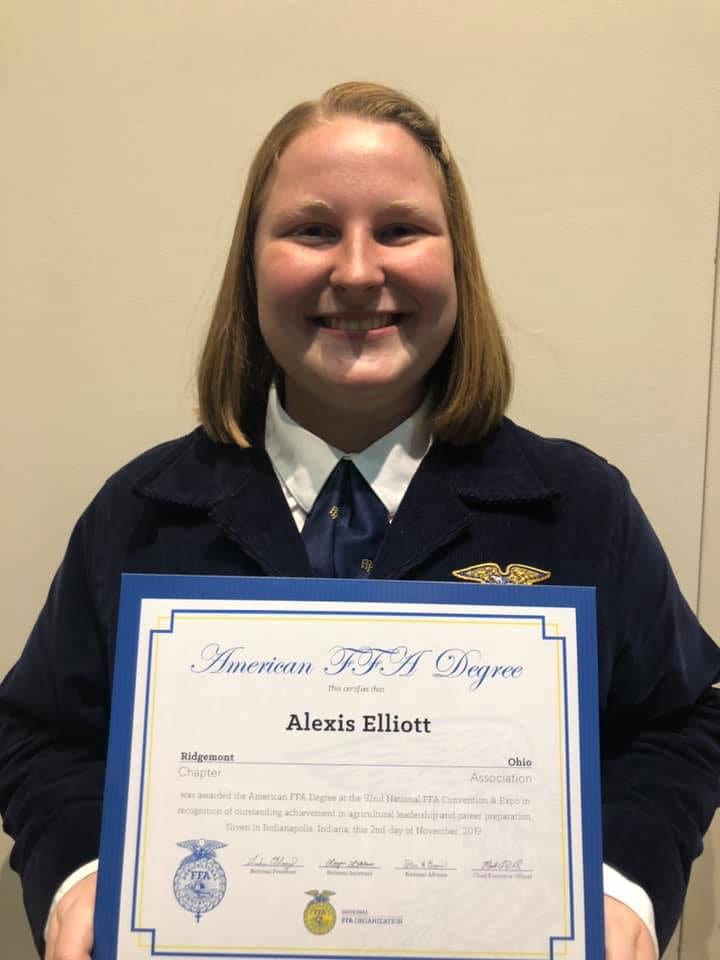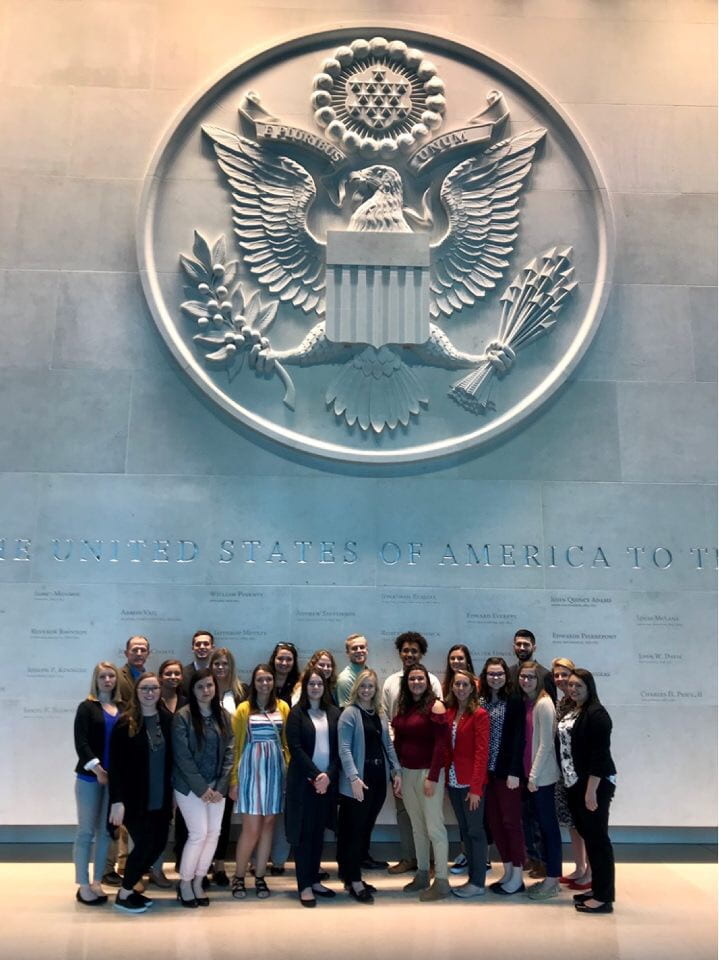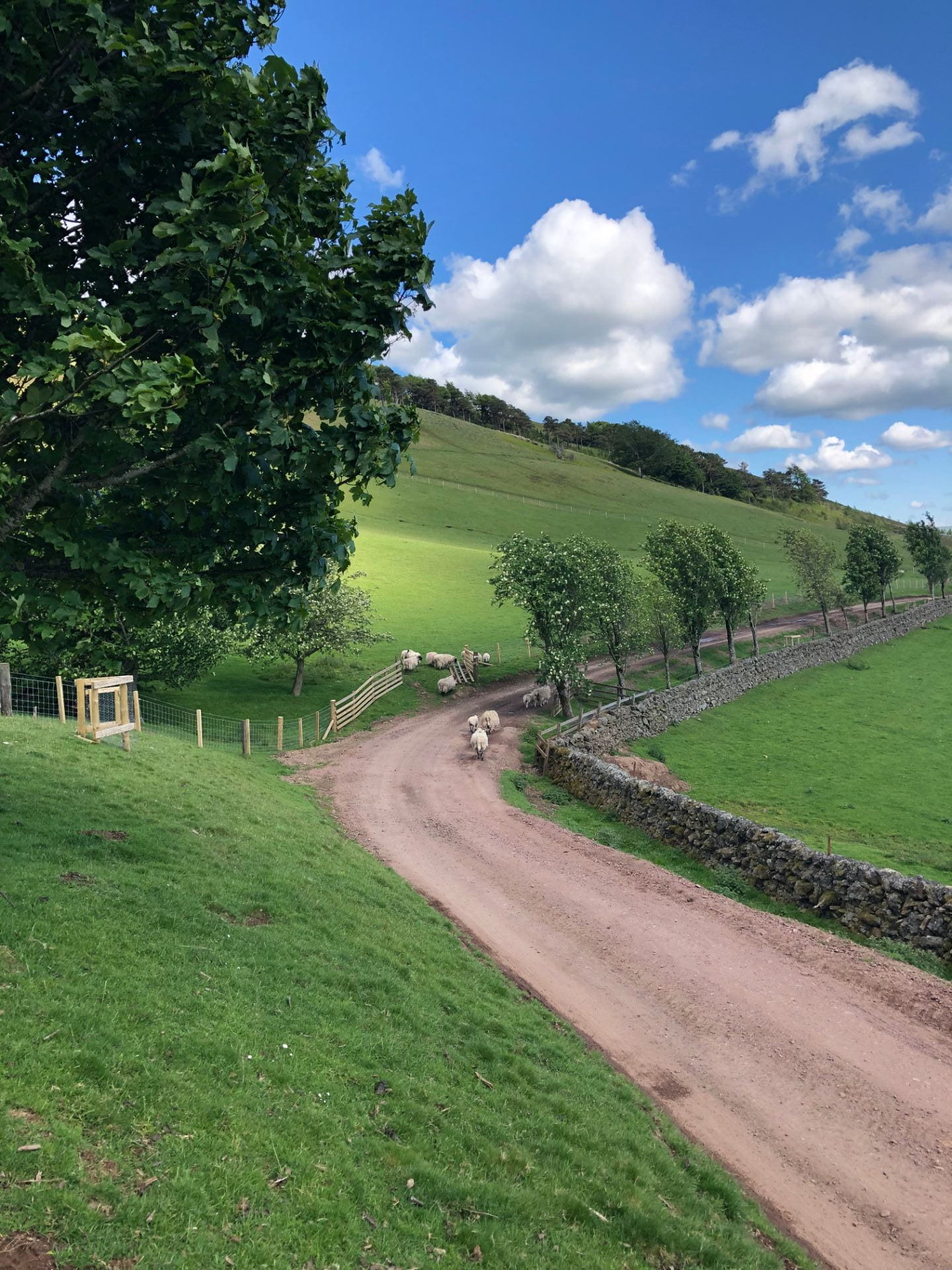Meredith Oglesby is a senior studying agricultural communication from Hillsboro, Ohio.
As a junior in high school, Oglesby was a member of the Ohio Youth Capital Challenge where she had the chance to implement a community garden at the Highland County Homeless Shelter in her hometown of Hillsboro.
Throughout the project she hand the chance to interact with residents who didn’t know about gardening or agriculture and weren’t eating the vegetables they had grown in their gardens. Olgesby worked with her county Supplemental Nutrition Assistance Program (SNAP) educator and started hosting cooking demonstrations where residents were shown how to cook the vegetables and were provided with recipes. By the end of the summer, Oglesby saw the residents taking care of the garden without assistance from the program and enjoying the fresh produce.
When it came time for her to choose a major in college, she knew she has always enjoyed reading and writing, but she also thought about her experience with the garden and knew that communication was important, especially in agriculture.
“I had become interested in food security and hunger so I thought agricultural communication would allow me to combine a lot of things I liked to do,” said Oglesby. “I also looked at the sheet that the college has with potential jobs associated with the majors and the agricultural communication jobs sounded like fun!”
Both of Oglesby’s parents attended Ohio State, her dad graduating from a degree in the Department of Agricultural Education (now the Department of Agricultural Communication, Education and Leadership), so she grew up as a Buckeye.
“When I was nine my mom brought me to my first Ohio State football game and I remember walking in the stadium and seeing the student section, watching script Ohio and being excited when we won the game,” said Oglesby. “After the game I looked at my mom and I said ‘I want to go here!’ And from the age of nine I had my heart set on being a Buckeye. I had no idea what I wanted to do or what college even was at that point, but I was like ‘this place is amazing.’”
Many years later as a senior in high school, she visited the College of Food, Agricultural, and Environmental Sciences (CFAES) and found that she still loved the atmosphere and everything CFAES had to offer, including the agricultural communication major.
“I didn’t apply to any other schools which in hindsight probably wasn’t the best idea, but this is where I wanted to be,” said Oglesby.
More than 12 years after her decision to attend Ohio State as a nine-year-old at Ohio Stadium, Oglesby has been selected as an ACEL Distinguished Senior. She is one of 10 students selected by faculty from the Department for the honor.
As a student at Ohio State, Oglesby has been a member of Agricultural Communicators of Tomorrow (ACT), serving as a CFAES Student Council representative, treasurer and secretary, Alpha Zeta Partners, where she was the Class 20 chronicler and the 2018-2019 chronicler, served as a CFAES Ambassador, participated in Buckeyethon for two years, Bucket and Dipper Junior Class Honorary, the CFAES Celebration of Students Banquet Planning Committee and was a member of the Ohio State Fair Junior Fairboard.
Education abroad programs were also a highlight of Oglesby’s college experience, as she participated in four programs. She traveled to Nicaragua in 2016 with other CFAES first year students, Australia, Brazil for six weeks with Alpha Zeta Partners and England and Scotland with the agricultural and environmental communications program.
During her senior year, she also completed a research project with Dr. Emily Buck designed to determine how the departments in one midwestern college of agricultural and environmental sciences are engaging with students. She also served as the editor of the AgriNaturalist, the annual student publication of the agricultural communication major.
In the classroom, Olgesby found the publication design and production course taught by Dr. Annie Specht to be her favorite, because she was encouraged to be creative through creating brand guides and graphics.
“I had never even heard of the Adobe Creative Cloud before her class,” she said. “This class proved to me I picked the right major.”
Agricultural communication students are required to complete two internships for graduation, and Olgesby did that and more. Completing internships with the Ohio AgriBusiness Association, Ohio State Extension Highland County, Ohio Association of Foodbanks, Ohio’s Country Journal and Ohio Ag Net and Ohio State’s Sustainability Institute, she has gained real world experience that will prepare her for career in the agricultural communication industry.
“Through my internships, specifically with the Ohio Association of Foodbanks and the Sustainability Institute, I realized the importance of effectively communicating research, data, and science,” she said. “I gained insight into how policy and communication take a systems approach in providing individuals with greater access to food. I began to understand how research and data are used to illustrate the need for agricultural and food programs in the state of Ohio.”
This internship experience, along with her time at the Sustainability Institute, solidified her decision to apply for graduate school after graduation to learn more about the impact research can have and how to effectively communicate science and research.
When asked if she has a favorite memory from throughout the past four years, Oglesby said it was hard for her to choose just one because she has loved being a student at Ohio State, but selected the opportunities to study abroad and travel the world as some of her top.
“My favorite memory from being a Buckeye is having the opportunity to study abroad in Australia. It was something I had on bucket list for years and I know that if I would have just traveled to Australia (as a vacation), I would have never have gotten to experience everything I did on my Ohio State study abroad,” she said. “My favorite moment was spending three days snorkeling on the Great Barrier Reef, seeing the sea turtles, clownfish and coral. I was basically living a real-life version of Finding Nemo and it is something I will never forget.”
Olgesby will begin her next chapter in the fall at the University of Florida, where she will be attending graduate school to study agricultural communication with a focus in food security and nonprofit studies. After graduate school, she hopes to obtain a communication job working for a nonprofit organization with a focus on food insecurity and agriculture.























